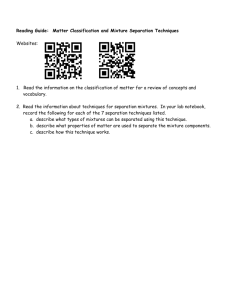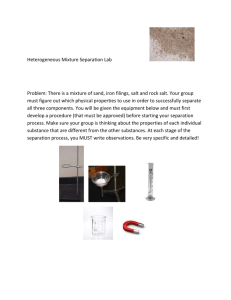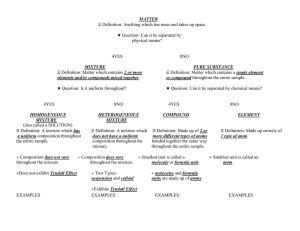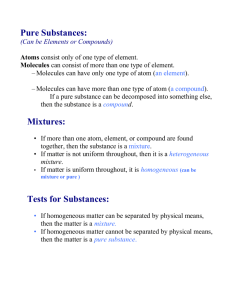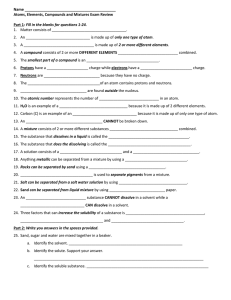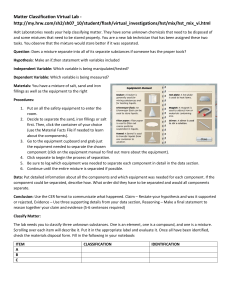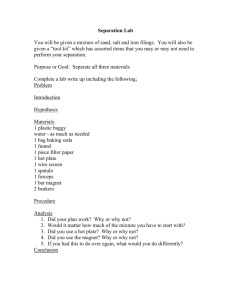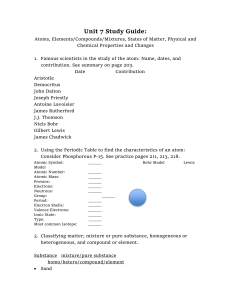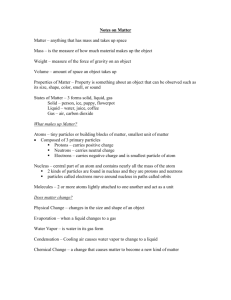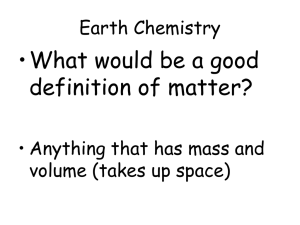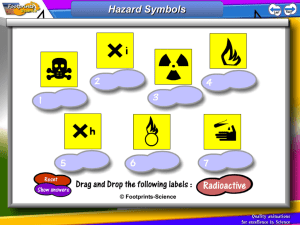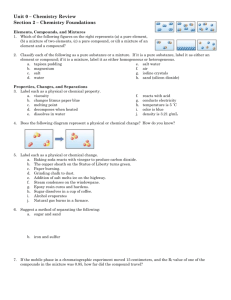Intro to Chemistry: Matter, Atoms, and Changes
advertisement
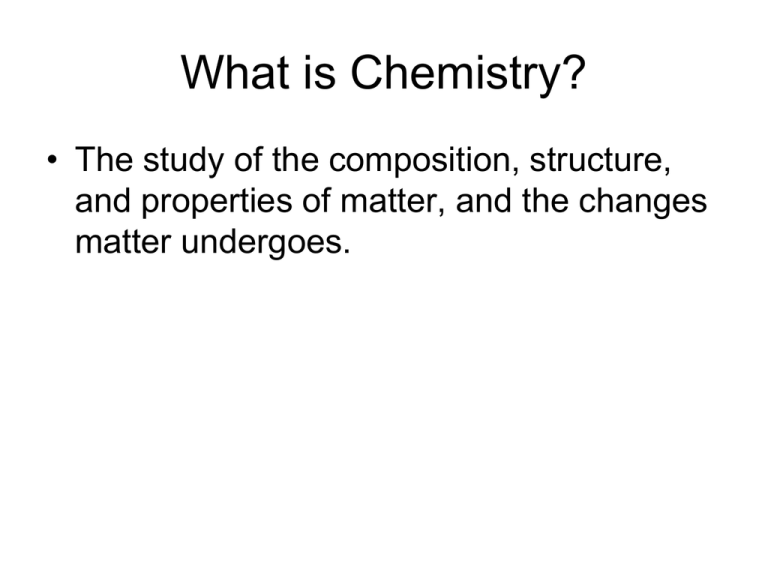
What is Chemistry? • The study of the composition, structure, and properties of matter, and the changes matter undergoes. What is Matter? • Anything that has mass and occupies space. How Can We Study Matter When There is So Much of It? • All of matter is made up of just a few “kinds” of matter. – People once believed that everything was made up of air, earth, fire and water. – Each “kind” of matter has a smallest possible piece that has all the properties of that “kind” of matter. How Can We Study Matter When There is So Much of It? • Today, we call those “kinds” of matter elements. • The smallest piece of an element that has the properties of that element is an atom. Matter can be . . . • A mixture – A kind of matter that can be separated into two or more other kinds of matter by physical processes. • A substance – A kind of matter that can not be separated into other kinds of matter by physical processes. Separation of a Homogeneous Mixture Separation of a Heterogeneous Mixture When a Mixture is Separated . . . • There is no change in the chemical identity of any of its components (substances). • We take advantage of differences in physical properties to achieve the separation. Example of a Physical Change Example of a Chemical Change Mixtures vs. Compounds • A mixture can have a variable composition but a compound has a fixed composition. – Example: H2O is 11.19% H, 88.81% O • When a mixture is formed, the individual substances retain their properties, but when a compound is formed, the elements lose their properties. Evidence for the Atomic Theory • Law of Definite Proportions • Law of Multiple Proportions • Law of Conservation of Mass Definite / Multiple Proportions Conservation of Mass Discovery of the Electron Charge of the Electron Plum Pudding Atom A Test of the “Plum-Pudding Hypothesis” Nuclear Model of the Atom
